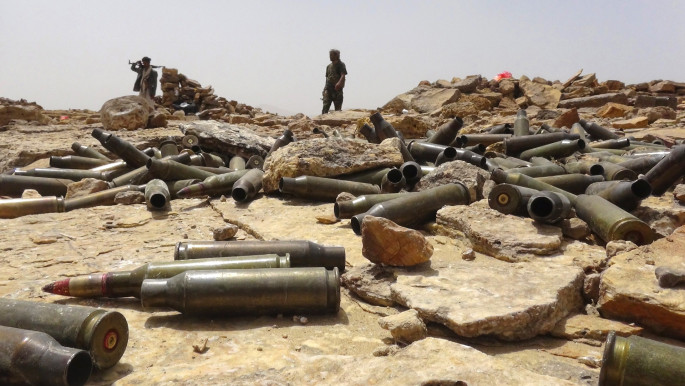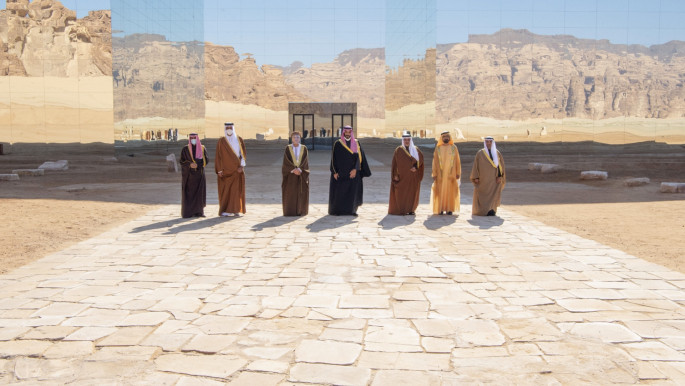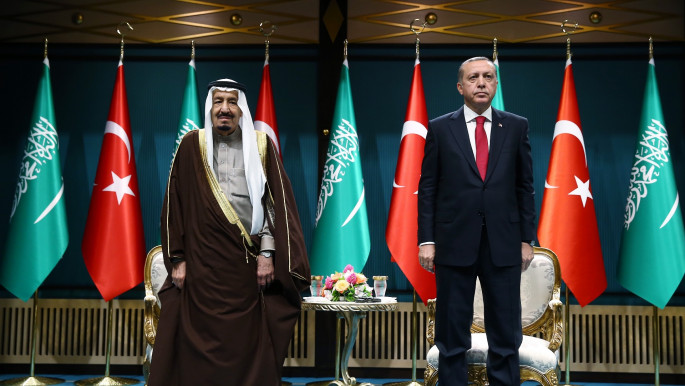Reset or rupture: What lies in store for US-Saudi ties?
Ever since President Joe Biden's victory in US elections, there has been apprehension in Riyadh that the change of administration would create new complications.
Having known that the incoming president was unhappy about the human rights situation in the Kingdom, Riyadh expected the worst. Discussing the matter publicly during his election campaign in 2019, Biden was explicit in his views.
"I would make it very clear we were not going to, in fact, sell more weapons to them, we were going to, in fact, make them pay the price and make them the pariah that they are," he said.
The first signal came when the US president made his first phone call to the Saudi King Salman bin Abdulaziz instead of his son, the Crown Prince Mohammed Bin Salman (MBS).
Confirming Riyadh's worst fears, the usual protocol between the two governments had been broken. Undoubtedly, this was a snub, as most decisions in the Kingdom are taken by Mohammed bin Salman.
The next move was more serious. The US government finally released a Central Intelligence Agency (CIA) report on the assassination of Saudi journalist Jamal Khashoggi. Pending for almost a year, the assessment had been held back by former president Donald Trump as he nurtured ties on a more personal level with the Saudi royalty.
 |
Ever since Biden's victory in US elections there has been apprehension in Riyadh that the change of administration would create new complications |  |
In the declassified summary, the Office of the Director of National Intelligence (ODNI) directly named the Crown Prince in the murder of the Saudi journalist in 2018, stating that, "We assess that Saudi Arabia's Crown Prince Mohammed bin Salman approved an operation in Istanbul, Turkey, to capture or kill Saudi journalist Jamal Khashoggi."
In response, the Saudi Foreign Ministry directly blamed the assassins, reasoning that, "This crime was committed by a group of individuals that have transgressed all pertinent regulations and authorities of the agencies where they were employed."
 |
|
| Read more: Why the battle for Marib could determine Yemen's future |
Surprisingly, however, president Biden still declined to impose sanctions on MBS. Instead, the US Treasury Department put the Saudi Royal Guard's rapid intervention force and a former Saudi intelligence chief on the sanctions list two days after the report's release.
Considering Biden's stern stance in the past, there were clearly some new realities that came into play. For starters, Saudi Arabia became pro-active as soon as it felt that Trump would lose the election. Turning around its foreign policy completely, the Kingdom started by mending fences with Qatar.
Next, Riyadh endorsed Biden's demand to end the Yemen war, then proceeded to introduce comprehensive legal reforms and, finally, even ceased its opposition to the JCPOA nuclear deal with Iran and improved ties with Turkey. Practically, the Saudi government had managed to remove most of the main hurdles in bilateral ties before Biden took over.
Second, the Gulf Cooperation Council (GCC) states stood by Saudi Arabia in the crisis. One after the other, the United Arab Emirates (UAE), Kuwait and Bahrain announced their support and solidarity with Riyadh.
 |
Saudi Arabia became pro-active as soon as it felt that Trump would lose the election, turning around its foreign policy |  |
Expressing confidence in the Saudi judiciary's handling of the case, the Emirati Foreign Ministry stated that, "The UAE fully supports Saudi Arabia's ongoing efforts to establish stability and security in the region," and stressed the country's rejection of "any attempts to exploit Khashoggi's case or interfere in the Kingdom's internal affairs."
Soon after this, the Saudi King received a phone call from Qatar's Emir Sheikh Tamim bin Hamad al-Thani who reaffirmed Riyadh's sovereignty and termed it as "integral" to the security of both Doha and the Gulf Cooperation Council (GCC).
Therefore, Washington would have to consider the fact that the region was united and Saudi Arabia was not alone. For this success, some credit also goes to the Saudi foreign ministry that activated other regional allies immediately.
Third, military sales could also prevent Washington from taking more effective action on Riyadh. Even though Biden has wanted a reduction in arms sales to Saudi Arabia, enforcing permanent cuts has proved difficult for most of the main US allies.
 |
|
| Read more: How the GCC reconciliation deal could reshape the region's power balance |
France continues to train Saudi troops while the United Kingdom remains the second largest military exporter to Saudi Arabia. Likewise, Australia, Spain and even Canada continued to export weapons to Riyadh after a brief freeze.
Even Washington is compelled to continue a certain category of arms sales as the Kingdom has faced intermittent missile attacks from Houthi forces in Yemen. Last week, the US firm Lockheed Martin inked an agreement with the Saudi Arabian Military Industries (SAMI) to set up a joint venture to enhance manufacturing capabilities locally. This deal is also in line with the Crown Prince's Vision 2030 goals. In addition, Saudi Arabia plans to spend $20 billion on military research and development over the next decade.
In the end, it seems that Washington never wanted to rock the boat completely. Aptly describing US intentions, the Secretary of State, Antony Blinken, has said that Washington wants to "recalibrate", not "rupture" its relations with a long-term security partner and regional power like Saudi Arabia.
Delayed by a year, the US intelligence report had lost most of its impact before being disclosed due to gradual leaks to the media. These minor scares achieved the desired target as Riyadh fixed most of the urgent issues in its neighbouring region.
 |
Opting to preserve relations with the Kingdom, Washington also hopes to increase its influence over an important Middle Eastern ally |  |
Even now, most of the evidence remains secret and can be made public whenever it is deemed necessary. As a senior member of the US Senate Intelligence Committee, Senator Ron Wyden has observed, "There is no question in my mind that there is considerably more to declassify here."
In fact, sanctioning the Crown Prince was always "too complicated" as such an action could have endangered US military interests in Saudi Arabia. Notably, the US State Department was never even requested by the administration to prepare workable options in case of such a scenario.
 |
|
| Read more: What is driving Saudi Arabia's apparent rapprochement with Turkey? |
Settling the matter for now, Washington has asked Riyadh to wind up the Rapid Intervention Force which was put on the sanctions list. Giving details, Ned Price, the State Department spokesman, has explained, "We have urged Saudi Arabia to disband this group and then adopt institutional systemic reforms and controls to ensure that anti-dissident activities and operations cease and cease completely."
Apparently, this elite unit was answerable only to the Crown Prince and seven of the 15 members of the hit squad that flew to Istanbul belong to the force. A visa ban has also been announced on 76 Saudis believed to be directly involved in the Khashoggi killing.
Opting to preserve relations with the Kingdom, Washington also hopes to increase its influence over an important Middle Eastern ally. However, Riyadh still has to tackle human rights abuses to improve ties. Biden recently said in an interview that he told the Saudi King that "the rules are changing, and we're going to be announcing significant changes."
Sabena Siddiqui is a foreign affairs journalist, lawyer and geopolitical analyst specialising in modern China, the Belt and Road Initiative, Middle East and South Asia.
Follow her on Twitter: @sabena_siddiqi





 Follow the Middle East's top stories in English at The New Arab on Google News
Follow the Middle East's top stories in English at The New Arab on Google News


